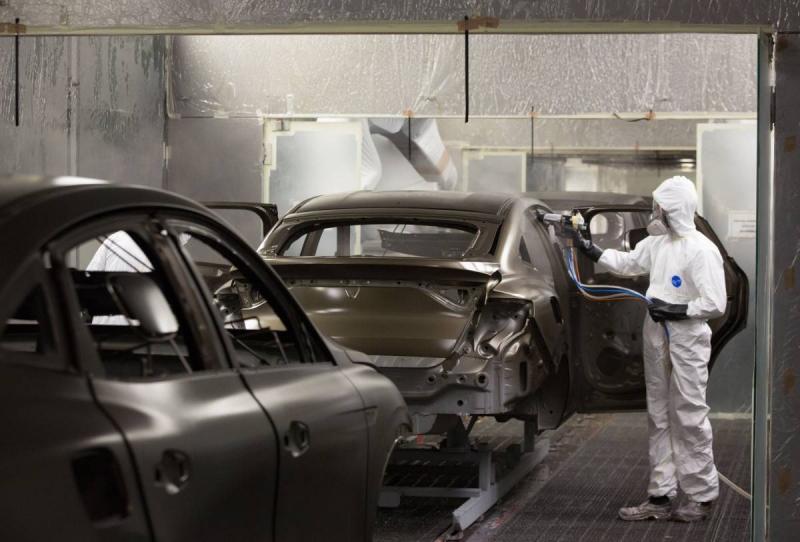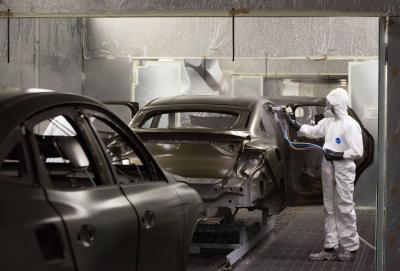As car manufacturers first encountered the chip shortage at the end of last year, they resorted to shutting down production facilities until the issue exploded. However, as the crisis enters its fifth month and worsens, companies are attempting to innovate to preserve at least some portion of their production. Japanese automotive giant Nissan has abandoned the installation of navigation systems in thousands of vehicles that typically include them due to the shortage. Meanwhile, Ram has stopped providing the standard "smart" rearview mirror that monitors blind spots in its 1500 pickup trucks, and Renault has also ceased the installation of large digital displays behind the wheel in its Arkana (SUV) models to conserve chips.
The crisis represents a historical test for the automotive sector at a time when it is trying to accelerate the shift towards smart electric vehicles. For decades, automakers have continued to add more advanced and enhanced features, but now they are temporarily relinquishing some to save their sales. This abandonment highlights the depth of the problems facing the industry. Just last week, BMW, Honda, and Ford warned of worsening issues due to the chip shortage.
The failure to secure essential supplies is a massive setback in the short term, with millions of vehicle sales projected to be lost this year, which bodes poorly for a future marked by increased competition between ultra-tech internet companies and consumer electronics firms. Stacy Rasgon, who covers the semiconductor sector at Sanford C. Bernstein, states: "The crisis will worsen before it improves, as it takes a long time to ramp up capacity to that extent."
Time is of the essence as automakers cannot afford to wait. Their responses include allocating scarce components to the more profitable and best-selling vehicles at the expense of other models, a strategy employed by companies like French Renault and Japanese Nissan. Automakers are also producing vehicles with less technology; for instance, Peugeot reverted to old analog speedometers in its "308" hatchback instead of using digital versions that require hard-to-find chips.
General Motors indicated that it made some of its small Chevrolet Silverado trucks without a vital unit for fuel economy, costing drivers approximately one mile per gallon. Nissan reduced its production of vehicles equipped with pre-installed navigation systems by a third, according to an informed source. The Japanese company was among the first car manufacturers to warn in early January about the shortage and directed its chip supplies to its two best-selling models in each major market. In one instance, Nissan transported chips from its plant in India to the U.S. on a charter flight to maintain production. A Nissan representative declined to comment.
Buyers of Renault's sporty Arkana must accept a smaller display without navigation maps and forgo the wireless phone charging option. Stellantis, formed from the merger of Fiat Chrysler and PSA, modified the Ram 1500, making the standard digital rearview mirror available only as a paid upgrade, according to an informed source. The company also uses parts that do not require chips for its classic truck to maintain production of the more expensive version.
Judy Tinson, a spokeswoman for Stellantis, stated via email: "Given the volatile nature of this complex issue, our employees across Stellantis find innovative solutions every day to minimize the impact on our vehicles to allow us to build the most in-demand products as much as possible."
The automotive sector's crisis can be traced back to poor planning during the pandemic and limited chip manufacturing capabilities, exacerbated by reduced shipping space as the global economy recovers from COVID-19. Even when automakers manage to secure orders, shipping their chips is often challenging.
Compounding the crisis is the fact that major automotive chip manufacturers like NXP and Infineon Technologies hold only 40% of the supply, while the remaining 60% is divided among tens of thousands of smaller designers, who often lack the leverage needed to persuade foundries to manufacture their chips when production capacity is limited.
Additionally, an informed source revealed that automakers are requesting a primary chip manufacturer to send microcontroller units that do not meet standard specifications. While these non-standard chips will not compromise safety necessities such as brakes, they may mean that in-car entertainment or emission monitoring systems are likely to malfunction in severe weather.
Sig Hooper, a consultant at Conway MacKenzie and former purchasing director at Fiat Chrysler, noted that automakers and suppliers should not be compelled to accept any available chips, instead reprogramming them for new tasks.
Last week, Tesla alleviated some of the crisis by reaching out to new semiconductor suppliers and quickly reprogramming those chips. Stellantis is working to unify chip specifications across its vehicle production lines instead of using specific chips for certain models, according to CFO Richard Palmer, who mentioned in a call with journalists this week: "More standardization and flexibility is the solution when facing supply constraints, and this way we manage scarcity."
Automakers are storing incomplete vehicles, known in the industry as "hesitant builds," to keep production lines running. In Hamtramck, Michigan, an area extends across several buildings filled with Ford F-150 trucks missing certain chips. General Motors also stated that it is storing incomplete vehicles while awaiting semiconductors.
The crisis continues. Meanwhile, automotive suppliers behind the scenes are making extraordinary efforts to secure chips. A partner of Stellantis called JVIS-USA LLC attempted to sue NXP in a Michigan court in a desperate bid to obtain more chips, but the judge denied its request.
The automotive supplier company Visteon indicated that automakers might seek compensation due to the shortage. In Japan, Toyota Motor President Akio Toyoda visited a Renesas plant that suffered a fire to expedite its return to production. No relief is in sight, even for Apple, which, with its high-end iPhone devices and stringent requirements, is at the front of the queue for chip customers. Last week, it announced that it is beginning to feel the effects of the crisis, which could leave automakers in a pinch even when chip producers can eventually increase capacity.
Anna Marie Paisden, an automotive analyst at Fitch Solutions, noted: "This is likely to be a long-term issue... and will worsen as vehicles become more technologically advanced and require more chips."




